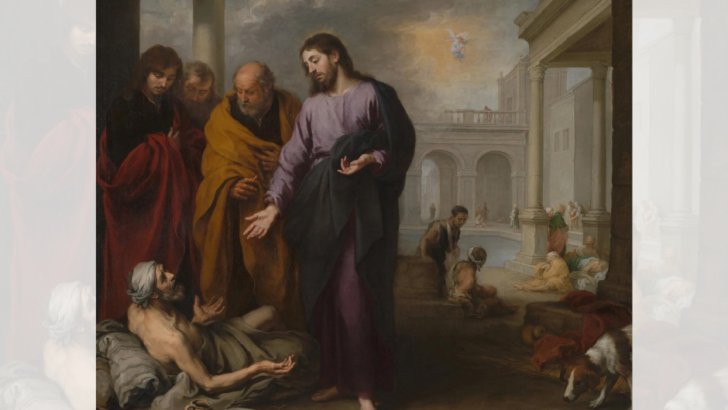The Sunday Gospel
Ps 123:1-2, 2, 3-4
2 Cor 12:7-10
Mk 6:1-6
The Messiah, it turns out, isn’t quite who people expected.
In Mark’s Gospel this Sunday, Jesus returns to his ‘native place’, his hometown of Nazareth, and when people hear him teaching in the synagogue, they can’t believe it. “Astonished” is the adjective Mark uses – and not in a good way.
As the evangelist writes: “They said, ‘Where did this man get all this? What kind of wisdom has been given him? What mighty deeds are wrought by his hands! Is he not the carpenter, the son of Mary…?’ And they took offense at him.”
Prejudice
The Biblical commentator, William Barclay, once described this encounter as a story about class prejudice – speculating that the people who knew Jesus as a carpenter, a simple tradesman who worked with his hands, looked down on him and couldn’t fathom that someone like that could heal the sick, perform miracles or preach with such penetrating wisdom.
Perhaps. But this passage in the Gospel is about more than just class, and it concerns much more than what someone does for a living. There’s more going on here. Jesus’ return to Nazareth asks each of us to examine our own biases and prejudices about God. It challenges all of us to look at our assumptions about just how God works in our world – and whether we can recognise him when he enters our lives.
Mother Teresa famously said that Jesus sometimes comes to us in the “distressing disguise of the poor”. The fact is, he often comes to us in ways we never expected, through people we might not have imagined – not just in the poor or the unschooled or in someone who sands wood and builds furniture.
Unnoticed
Are we willing and able to look for him in others who go unnoticed or unappreciated?
Do we have faith to believe God might make himself known to us through the homeless, the outcast, the marginalised, the addicted, the imprisoned?
Do we look for Jesus in them?
Christ himself said, “Whatever you did for the least of these, you did for me.” We need to give attention to those who are often dismissed because in them we may indeed find Christ. Take no one for granted. Let no one be brushed aside. God often announces himself in people and events we find insignificant or unsubstantial.
‘When I am weak,’ Paul writes, ‘then I am strong’”
Even now, the God who entered our world as an infant in a manger in a stable continues to make himself present under the appearance of something as small and ordinary as a sliver of bread.
In the second reading, we hear St Paul’s words to the Corinthians about humility, fragility and suffering – and out of that he realises God’s grace is enough.
“When I am weak,” Paul writes, “then I am strong.”
Counterpoint
His words are a perfect counterpoint to this Gospel account of Jesus’ own rejection by his family and friends in Nazareth – a story that carries its own kind of insults and hardships, suffering and disrespect. Paul discovered strength in weakness and grace in being small. That is the story of the Incarnation, which tells us that God can come to us as a child in a stable. A carpenter sawing wood can be the Messiah. God confounds our expectations.
This Gospel reminds us not only of the Messiah’s humble beginnings, but also that far too many people were unwilling or unable to accept this fact: God can come to us in ways we never imagined.
Are we ourselves open to that possibility?
The people of Jesus’ native place encountered him and were ‘astonished’ because they didn’t have the faith to believe the way God was working in their world.
What about us?
Ours is a God of endless creativity and possibility. For that reason alone, we should strive to have the faith they lacked – and prepare to be even more astonished.
–
Deacon Greg Kandra is an award-winning author and journalist, and creator of the blog “The Deacon’s Bench.”


 Christ healing the paralytic at the pool
of Bethesda by Bartolomé Esteban
Murillo. National Gallery, London
Christ healing the paralytic at the pool
of Bethesda by Bartolomé Esteban
Murillo. National Gallery, London 